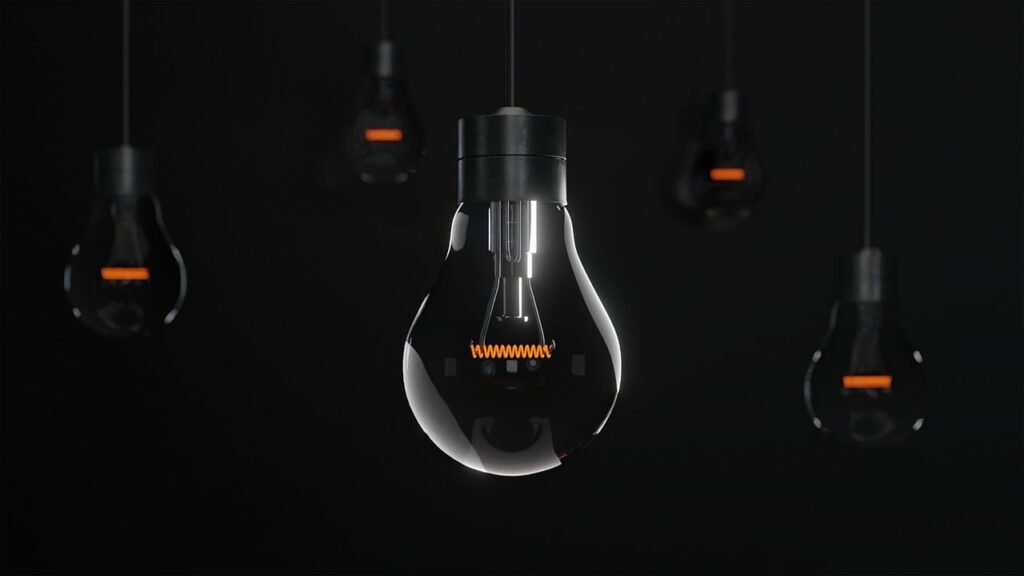Imagine a world where your laptop is not just a tool but a gateway to a whole new level of possibilities. With advanced laptop technologies continuously pushing boundaries, this vision is becoming a reality. From sleek designs to lightning-fast processors, the future of laptops is promising an immersive user experience like never before. Join us as we explore the innovative advancements that are driving the future of laptops and revolutionizing the way we work, play, and connect.

This image is property of pixabay.com.
1. Improving Vehicle Design and Development
1.1. Computer-Aided Design (CAD)
Computer-Aided Design (CAD) has revolutionized the way vehicles are designed and developed. With CAD software, engineers can create detailed 2D and 3D models of vehicles, allowing for a more efficient and accurate design process. CAD not only speeds up the design phase but also enables engineers to easily make modifications and iterations. By using CAD, manufacturers can ensure that their vehicles are aesthetically appealing, ergonomic, and functional.
1.2. Virtual Prototyping
Virtual prototyping is another key technology that is helping to improve vehicle design and development. By creating virtual prototypes, engineers can simulate and evaluate various design concepts without the need for physical prototypes. This saves time, resources, and costs associated with building and testing physical models. Virtual prototyping allows engineers to test the performance, aerodynamics, and safety of a vehicle before it is physically built, ensuring that any issues or improvements can be addressed early in the development process.
1.3. Simulation Testing
Simulation testing is a crucial component of vehicle design and development. It involves using computer simulations to replicate real-world driving conditions and scenarios. By conducting simulation tests, engineers can evaluate vehicle performance, safety, and efficiency without the need for physical testing. Simulation testing allows for in-depth analysis of vehicle behavior in different conditions, helping to identify potential design flaws and optimize vehicle performance. This technology plays a vital role in ensuring that vehicles are safe, reliable, and meet regulatory standards.
2. Enhancing Performance and Efficiency
2.1. Engine Optimization
Engine optimization is an essential aspect of improving vehicle performance and efficiency. Advanced laptop technologies enable engineers to conduct in-depth analysis of engine components, combustion processes, and fuel efficiency. By optimizing engine design and tuning, manufacturers can enhance power output, reduce emissions, and improve fuel economy. Computational fluid dynamics (CFD) simulations, made possible by powerful laptops, help engineers refine intake and exhaust systems, as well as optimize fuel injection strategies.
2.2. Hybrid and Electric Vehicle Development
With the growing demand for more sustainable transportation options, the development of hybrid and electric vehicles (EVs) has become a top priority for many manufacturers. Laptop technologies play a crucial role in the design and development of these vehicles. Engineers can use advanced simulation tools to model the performance and range capabilities of hybrid and electric drivetrains. Additionally, battery management systems can be optimized using powerful laptops to ensure efficient charging and discharging, as well as extend battery life.
2.3. Lightweight Material Research
Reducing vehicle weight is crucial for enhancing performance and fuel efficiency. Laptop technologies aid in the research and development of lightweight materials, such as carbon fiber composites and high-strength alloys. By analyzing the structural integrity and crashworthiness of these materials using advanced simulation software, engineers can determine the ideal material compositions and geometries. This enables manufacturers to produce vehicles that are both lightweight and structurally sound, leading to improved performance and reduced fuel consumption.
3. Advancing Safety Systems
3.1. Collision Avoidance Systems
Collision avoidance systems are becoming increasingly important in modern vehicles, helping to prevent accidents and protect passengers. Utilizing advanced laptop technologies, engineers can develop sophisticated sensor systems that detect and react to potential collisions. Through simulations, these systems can be optimized to provide accurate and timely warnings to the driver, as well as automatically apply the brakes or steer the vehicle to avoid a collision. This technology greatly enhances vehicle safety and reduces the risk of accidents.
3.2. Autonomous Driving
Autonomous driving technology has the potential to revolutionize the automotive industry, and advanced laptop technologies are at the forefront of its development. Engineers are leveraging the power of laptops to train artificial intelligence algorithms that enable vehicles to navigate and make decisions autonomously. Through data analysis and real-time processing, laptops help improve the accuracy and reliability of autonomous systems. With ongoing advancements in laptop technologies, autonomous driving has the potential to become a mainstream reality, enhancing safety and transforming the driving experience.
3.3. Driver Assistance Systems
Driver assistance systems are designed to support and enhance the driver’s capabilities, providing additional safety features and reducing driver fatigue. Advanced laptops enable the development of intelligent driver assistance systems, such as adaptive cruise control, lane-keeping assist, and blind-spot monitoring. These systems utilize sensors and algorithms to detect potential hazards and assist the driver in maintaining control of the vehicle. By leveraging laptop technologies, manufacturers can continuously improve the accuracy and effectiveness of driver assistance systems.
4. Streamlining Manufacturing Processes
4.1. Robotics and Automation
Robotic technologies and automation have greatly transformed the manufacturing processes in the automotive industry. Advanced laptops enable manufacturers to program and control robotic systems, minimizing human error and increasing production efficiency. Robots can perform repetitive tasks with high precision and speed, ensuring consistent product quality. By utilizing laptop technologies, manufacturers can integrate robotic systems into various stages of vehicle production, from assembly to painting and quality control checks.
4.2. Quality Control
Quality control is a crucial aspect of manufacturing vehicles, ensuring that every vehicle meets stringent standards for safety and performance. Laptop technologies help streamline quality control processes through advanced data analysis and machine learning algorithms. Manufacturers can collect and analyze data from various sensors and production systems in real-time, identifying any defects or deviations from desired specifications. By continuously monitoring and improving quality control processes, manufacturers can deliver vehicles that meet and exceed customer expectations.
4.3. Supply Chain Management
Efficient supply chain management is essential for the timely production and delivery of vehicles. Advanced laptop technologies help manufacturers optimize supply chain operations through data analysis and predictive modeling. By analyzing various factors such as inventory levels, transportation routes, and demand forecasts, manufacturers can optimize their supply chain to minimize costs and improve overall efficiency. Laptop technologies enable real-time monitoring of inventory levels and facilitate seamless communication with suppliers, ensuring a smooth and efficient supply chain.

This image is property of pixabay.com.
5. Revolutionizing In-Car Entertainment and Connectivity
5.1. Infotainment Systems
In-car infotainment systems have become a key feature in modern vehicles, providing drivers and passengers with a wide range of entertainment and connectivity options. Advanced laptop technologies are driving the development of sophisticated infotainment systems that integrate with smartphones and other devices seamlessly. These systems offer features such as touchscreen interfaces, voice recognition, and internet connectivity, allowing users to access navigation, music, and communication services while on the road. With laptops powering these systems, the in-car entertainment experience is more intuitive and user-friendly than ever before.
5.2. Advanced Connectivity
Advanced connectivity technologies are transforming the way vehicles interact with the outside world. Laptops enable the integration of various communication protocols, such as cellular networks and Wi-Fi, into vehicles. This connectivity enables features such as real-time traffic information, remote vehicle monitoring, and over-the-air updates. With laptops driving the connectivity revolution, vehicles are becoming smarter and more seamlessly connected to the digital world, enhancing the overall driving experience.
5.3. Intelligent Personal Assistants
Intelligent personal assistants are making their way into vehicles, providing drivers with voice-activated control over various vehicle functions. Powered by advanced laptop technologies, these assistants use artificial intelligence algorithms to understand and respond to driver commands. Drivers can use voice commands to adjust temperature settings, change music, or even find nearby restaurants. With laptops facilitating the development of intelligent personal assistants, the driving experience becomes more convenient and hands-free.
6. Performance Monitoring and Diagnostics
6.1. Real-time Data Analysis
Real-time data analysis has become an integral part of monitoring and optimizing vehicle performance. Laptop technologies enable the collection and analysis of real-time data from various vehicle sensors and systems. Manufacturers can use this data to monitor engine performance, fuel consumption, and other critical metrics. By analyzing real-time data, manufacturers can identify any anomalies or potential issues and take proactive measures to address them. This technology ensures that vehicles perform at their best and helps prevent unexpected breakdowns or failures.
6.2. Predictive Maintenance
Predictive maintenance is an emerging field that leverages laptop technologies to monitor vehicle components and predict potential failures. By analyzing data from sensors and historical maintenance records, manufacturers can identify patterns and indicators of potential failures. This allows for proactive maintenance and replacement of components before they fail, reducing the risk of unexpected breakdowns and minimizing downtime. Predictive maintenance improves vehicle reliability and reduces maintenance costs, ensuring vehicles are always in optimal condition.
6.3. Remote Software Updates
With the increasing complexity of vehicle software systems, the ability to remotely update and manage software is essential. Laptop technologies enable manufacturers to remotely update vehicle software, ensuring that vehicles always have the latest features, bug fixes, and security patches. These updates can be delivered over the air, eliminating the need for physical service visits. Remote software updates improve the user experience and enable manufacturers to continuously enhance vehicle functionality and address any software-related issues.

This image is property of pixabay.com.
7. Enhancing Driver Experience and Comfort
7.1. Ergonomics and Human-Machine Interfaces
Laptops are playing a significant role in enhancing the ergonomics and human-machine interfaces in vehicles. Through advanced simulations and user-centric design approaches, manufacturers can optimize the layout and placement of controls, displays, and seating positions. Laptop technologies enable the development of intuitive interfaces that are easy to use and minimize driver distraction. By prioritizing driver comfort and usability, vehicles become more user-friendly, creating a more enjoyable driving experience.
7.2. Adaptive Cruise Control
Adaptive cruise control systems utilize advanced laptop technologies to enhance driver convenience and safety. These systems use sensors and algorithms to automatically adjust the vehicle’s speed and maintain a safe distance from the vehicle ahead. By leveraging laptop technologies, manufacturers can incorporate features such as stop-and-go functionality and lane centering, further reducing driver workload and enhancing the overall driving experience. Adaptive cruise control systems make long drives more comfortable and less tiring for drivers.
7.3. Smart Climate Control
Smart climate control systems utilize laptop technologies to provide personalized and efficient temperature control in vehicles. These systems use sensors and algorithms to monitor and adjust the temperature, fan speed, and air distribution based on individual preferences and environmental conditions. By utilizing laptops, manufacturers can continuously analyze and optimize climate control parameters for maximum comfort and energy efficiency. Smart climate control systems create a pleasant and customizable environment for drivers and passengers.
8. Improving Energy Management and Sustainability
8.1. Energy Harvesting
Energy harvesting technologies are being developed to harness the energy generated by vehicles during operation. Laptop technologies enable the development of systems that capture and store energy from sources such as regenerative braking and solar panels. This harvested energy can be used to power various vehicle components, reducing reliance on traditional fuel sources and enhancing overall energy efficiency. With advancements in laptop technologies, energy harvesting systems have the potential to significantly reduce carbon emissions and promote sustainability.
8.2. Battery Optimization
Battery optimization is critical for the performance and range of hybrid and electric vehicles. Laptop technologies enable manufacturers to optimize battery management systems, ensuring efficient charging and discharging of batteries. Through data analysis and simulations, manufacturers can determine the optimal battery cell configurations and thermal management strategies. This optimization improves battery life, range, and overall vehicle performance, making hybrid and electric vehicles more practical and appealing to consumers.
8.3. Eco-driving Applications
Eco-driving applications utilize laptop technologies to provide real-time feedback to drivers on their driving habits and fuel consumption. By analyzing data from various vehicle sensors and systems, eco-driving applications can provide suggestions to drivers on how to drive more efficiently and economically. This technology promotes fuel-efficient driving techniques such as smooth acceleration, coasting, and optimal speed. Eco-driving applications not only help drivers save on fuel costs but also contribute to reducing carbon emissions and promoting sustainable driving practices.
9. Enabling Vehicle-to-Vehicle Communication
9.1. Cooperative Systems
Cooperative systems utilize laptop technologies to enable vehicle-to-vehicle communication, allowing vehicles to exchange information and coordinate actions. This technology enables features such as cooperative adaptive cruise control and intersection collision warning. By sharing information about speed, location, and intentions, vehicles can cooperate to enhance safety and optimize traffic flow. Laptop technologies facilitate the development of secure and reliable communication protocols, ensuring effective vehicle-to-vehicle communication and enabling more advanced cooperative systems in the future.
9.2. Traffic Management
Traffic management systems leverage laptop technologies to monitor and manage traffic flow, improving overall efficiency and safety on the roads. By collecting real-time data from various sources, such as roadside sensors and vehicle-to-infrastructure communication, traffic management systems can provide accurate and timely information to drivers and traffic control centers. Laptop technologies enable the analysis and processing of this data, allowing for the optimization of traffic signal timings, congestion detection, and route guidance. Traffic management systems enhance traffic flow, reduce congestion, and minimize travel times.
9.3. Emergency Vehicle Notification
Laptop technologies enable the development of systems that automatically notify nearby vehicles when an emergency vehicle is approaching. Through vehicle-to-vehicle communication and GPS technologies, these systems alert drivers to the presence of emergency vehicles and provide guidance on safe and efficient actions to take, such as pulling over or clearing a lane. By leveraging laptop technologies, manufacturers can facilitate the rapid and effective communication between emergency vehicles and other road users, enhancing safety and reducing response times in emergency situations.
10. Cybersecurity and Data Privacy
10.1. Protecting Vehicle Systems from Cyber Threats
With the increasing connectivity of vehicles, ensuring the cybersecurity of vehicle systems has become a critical concern. Laptop technologies play a vital role in protecting vehicle systems from cyber threats. By incorporating robust encryption, authentication, and intrusion detection systems, manufacturers can safeguard vehicle systems against unauthorized access and malicious attacks. Additionally, ongoing monitoring and risk assessment using laptops help identify potential vulnerabilities and enable timely updates and patches to secure vehicles against emerging threats.
10.2. Securing Personal Data
The collection and utilization of personal data by vehicles raise concerns about data privacy. Laptop technologies enable manufacturers to implement robust data security measures to protect personal information. By employing encryption, access controls, and secure data transmission protocols, manufacturers can ensure that personal data is securely stored and processed. Laptop technologies also facilitate compliance with privacy regulations and enable users to have control over their personal data, giving them peace of mind while enjoying the benefits of connected vehicles.
10.3. Ensuring Data Privacy
Data privacy is paramount in the age of connected vehicles, where large amounts of data are collected and processed. Laptop technologies enable manufacturers to implement privacy-enhancing technologies and practices to ensure data privacy. By anonymizing and aggregating data, limiting data retention periods, and obtaining explicit user consent for data collection, manufacturers can respect user privacy while still benefiting from the insights gained from data analysis. Laptop technologies enable manufacturers to prioritize data privacy and build trust with their customers in an increasingly data-driven automotive landscape.
In conclusion, advanced laptop technologies are driving significant advancements in various aspects of the automotive industry. From improving vehicle design and development through computer-aided design and virtual prototyping to streamlining manufacturing processes with robotics and automation, laptops play a crucial role in enhancing all aspects of vehicle production. They also contribute to enhancing performance, safety, connectivity, and energy management, ultimately leading to a better driving experience. With ongoing advancements in laptop technologies, the future of the automotive industry looks promising, offering vehicles that are safer, more efficient, and more enjoyable to drive.
